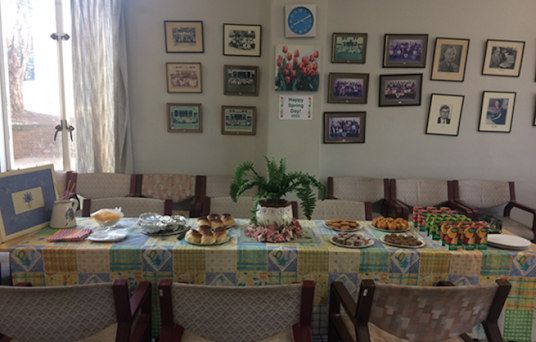The Life Sciences Library staff room kitchen (Pietermaritzburg)
recently had a much needed makeover. A brand new sink with white cupboards and black
granite counter tops were installed. I must say that the kitchen looks very
posh and modern. We just had to cope with not having water for a few days, as
the sink tap had to be shut off while the pipes and sink were being fitted. Every
day we used to go pass and check in on the progress. Once the renovations were
completed, we were called in by the carpenter to ask if we were happy with the
outcome. We were delighted as the cupboards were clean and the counter tops
were sparkling. Nicky Pitout (assistant librarian) and I fussed over it as if
it were our own, and even did a quick spring clean of the contents of the other
existing cupboards. Simon Shezi (subject librarian) was so thrilled with the new
kitchen and the new table and chairs, having been on leave during the
renovation.
Our previous kitchen resembled a lab (and I think at one
stage it was a laboratory) with heavy brown wooden countertops and a laboratory
styled sink. It didn’t have proper tables and the chairs were a mixture of old
typist chairs, as well as what we had salvaged from the common seating areas in
the library. The kitchen was also becoming a dumping ground for all sorts of
things.
We are very grateful for this transformation. It has truly
uplifted our spirits. Have a look at the before and after photos.
Before























.png)







